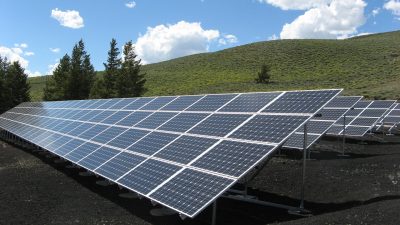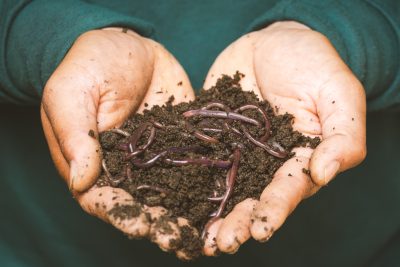
Being sustainable on a budget
Do you have a passion for helping protect the environment but are not sure what you can do on your own?
Making small changes in your day to life to live more sustainably can go a long way towards protecting the environment without breaking the bank, in some cases living more sustainably can save you money.
If you’re not familiar with what sustainability is, broadly speaking it is using resources at the same rate that they can be replenished so the environment can thrive.
When the environment is healthy and prosperous then society reaps the rewards both economically and socially.
Everyone’s approach to sustainability is different, institutions like the University of Queensland might incorporate sustainable practices into daily operations and long term planning, where as individuals might just be sustainable when they can.
Whatever your approach, there’s no right or wrong way, but there are ways you can live a sustainable life without breaking the bank.
Energy Sustainability

Solar panels near a hill.
The cost of energy in Australia have skyrocketed over the last twenty years, with high energy prices causing distress to many Australian’s in 2022.
Incorporating sustainable practices when making decisions about household energy can be good for the environment and for your bank account.
Monitoring your energy usage is a great first step towards energy sustainability in your home, some energy retailers in Queensland offering an affordable upgrade to a digital energy meter it’s easier than ever to find out how you use your energy.
In the average Queensland home the pool is the biggest energy consumer followed by hot water systems and fridges.
The more you know about your energy consumption habits the easier it is to reduce your energy consumption, leading to more sustainable living practices and a cheaper energy bill.
There are seven things you can do right now to reduce your energy consumption:
1. Replace lighting with LED lighting.
2. Take shorter showers.
3. Install thicker curtains on windows.
4. Switch off lights and appliances when not in use.
5. Adjust air conditioner tempretures to be more efficient (18 in winter, 24 in summer, for Queensland).
6. Wash clothes in cold water and let them air dry on the clothesline.
7. Use a fan to stay cool rather than an air conditioner.
Food Sustainability

Person holding worms.
The latest research from the Australian Government suggests that approximately eight percent of global greenhouse gas emissions comes from food waste.
There a three ways you can reduce on food waste that will not just cut your carbon emissions but will save you money on your next grocery bill.
Preventing food waste is the single most powerful thing you can do to reduce your food waste, and is one of the easiest.
Before your next grocery shop check your pantry, fridge, and freezer to see what you have, avoid shopping when hungry, and use a shopping list, by planning for meals ahead of time like this you can drastically reduce how much food you buy, and importantly how much goes to waste.
Other ways you can reduce food waste include using simple recipes, checking portion sizes, and growing your own fruit and vegetables.
If preventing isn’t an easy option, the next way you can reduce your food waste is by reusing food.
Designate one night a week as left over night, where you use up your excess food. Alternatively take your leftovers to university or work, or incorporate them into another meal later in the week.
Storing food in clear containers, and labelling food in your fridge and pantry makes it easier to use your leftovers.
Recycling your food scraps is the third way to reduce your food waste can be the most fun.
Composting food scraps and giving it to worms means your food waste can be broken down naturally before it starts to emit greenhouse gasses.
Start a home composting challenge with the other in your house to see who composts the most food waste in a month.
Alternatively regrow your food scraps, or soak your citrus skins in water overnight to make a cheap homemade surface cleaner.
Travel Sustainability

Person riding bike in city.
Most of the times when we need to get somewhere our car is the most convenient way to get there but with advances in public transport infrastructure and personal electronic scooters sustainable travel is getting easier than ever.
By far the cheapest and healthiest way to be more sustainable in your travel is to introduce active travel like cycling, running, or walking for one or more car trips a week.
Sometimes riding an bike or walking isn’t always practical, but for short commutes that require a little more speed or power, an e-bike or e-scooter does the job perfectly, creating far less emissions than a car, and being much faster than foot travel.
If using your car is inescapable, you can use it in a sustainable manner that will create less emissions and save you money on fuel.
Eco-driving is a driving practice that employs a variety of techniques to conserve fuel, from gently breaking and accelerating, to maintaining a steady cruise speed on highways, to shifting gears as quickly as possible, eco-driving will help reduce your fuel consumption per kilometre driven.
Even something as simple as setting your car to eco mode if possible, can help improve sustainability when traveling.
Don’t forget
There is so many ways to improve your sustainability, whether it’s at home, at work, or at university.
The most important first steps to being more sustainable are doing further research to see what sustainability practices will work best for your specific circumstances, the next step is being willing to give sustainability a go.
If you’re a student at the University of Queensland looking for more ways to become more sustainable, look into the work done by the UQ Sustainability Office, or look at attending events put on by the UQ Geography and Environmental Management Society.
